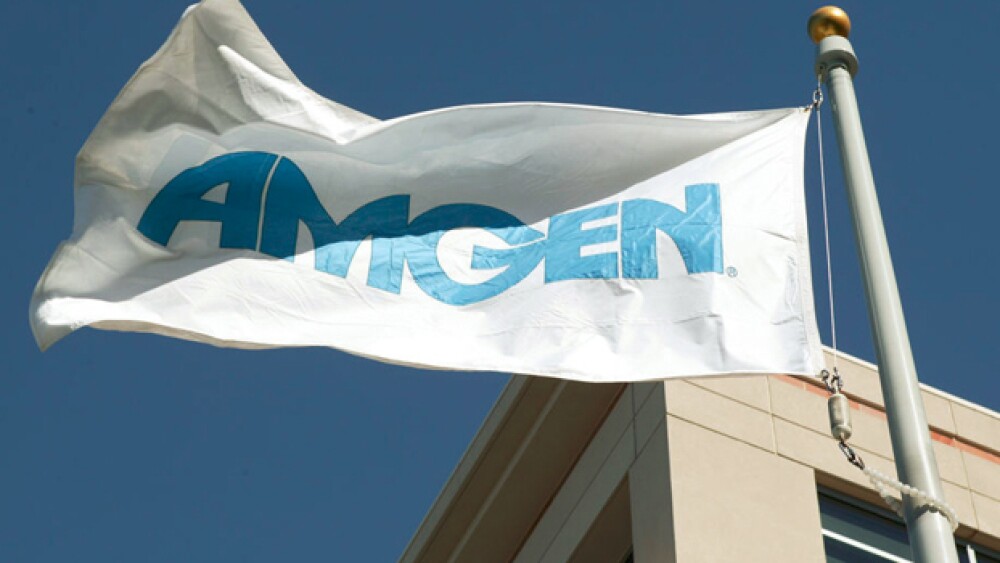Amgen continues to move toward completing its promise of shifting patients to a cheaper cost of its blockbuster anti-cholesterol drug Repatha, a PCSK9 (proprotein convertase subtilisin kexin type 9) inhibitor.
Amgen continues to move toward completing its promise of shifting patients to a cheaper cost of its blockbuster anti-cholesterol drug Repatha, a PCSK9 (proprotein convertase subtilisin kexin type 9) inhibitor.
In October, the company announced its intentions to reduce the price of the medication by 60 percent. Repatha is prescribed to people with high cholesterol who are at risk for heart attacks and strokes. On Monday, the first day of the annual J.P. Morgan Healthcare Conference, Amgen announced that 80 percent of current Medicare patients who have been prescribed Repatha have access to the Repatha SureClick device, the most common form of Repatha, at the lower price point. The company noted that all Repatha device options, including the Pre-Filled Syringe and Pushtronex (monthly on-body infusor), are now available at the 60 percent reduced list price of $5,850 per year. The lower priced Repatha options are identical to the Repatha options currently available, but have been introduced to reduce out-of-pocket costs for patients, especially Medicare patients, the company said in a brief release.
What’s more, Amgen noted that more patients can now fill a prescription for Repatha at a retail pharmacy due to the fact that the medication has been reclassified as a non-specialty therapy by insurance payers.
Murdo Gordon, head of global commercial operations at Amgen, said that every 40 seconds in America, someone has a heart attack or stroke, which makes cardiovascular disease one of the most significant healthcare challenges in this nation.
“Repatha can help to address this significant public health issue, which is why we are working hard to improve patient affordability by lowering Repatha’s list price to improve patient co-pays, especially for Medicare patients,” Gordon said in a statement.
Gordon noted that, not surprisingly, the list price reduction of Repatha has been well received by patients and payers. He said the company is seeing a noticeable impact for its patients. But, Gordon said there is still plenty of work to do in order to get the drug into the hands of people who will benefit from it.
“More must be done to help more patients get to a low fixed co-pay. We need continued engagement from all stakeholders – from healthcare professionals to payers to plans and to government agencies – to help ensure patients benefit from the lower list price to reduce their out-of-pocket costs,” Gordon said.
When the company announced the price reduction in October, Robert A. Bradway, chairman and chief executive officer of Amgen, noted that more than $600 billion is spent on cardiovascular disease in the United States annually. Repatha, he said at the time, can help mitigate some of the concerns of increased risk of cardiovascular disease.





